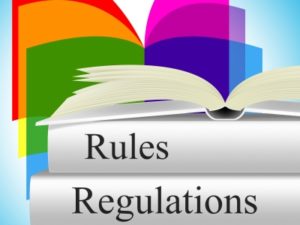 The Philippine Bureau of Customs (BOC) has submitted the draft implementing rules and regulations (IRR) of the Anti-Agricultural Smuggling Act of 2016 to the Department of Finance (DOF) for final review.
The Philippine Bureau of Customs (BOC) has submitted the draft implementing rules and regulations (IRR) of the Anti-Agricultural Smuggling Act of 2016 to the Department of Finance (DOF) for final review.
Republic Act (R.A.) No. 10845, or the Anti-Agricultural Smuggling Act, declares large-scale agricultural smuggling as an act of economic sabotage and levies heftier penalties against violators.
Under the draft IRR, large-scale agricultural smuggling covers all illegal importations of sugar, corn, pork, poultry, garlic, onion, carrots, fish, and cruciferous vegetables in their raw state or after undergoing simple preparation or preservation for the market.
Illegal importations with a fair market value of P1 million, or P10 million in the case of rice, are classified as agricultural smuggling.
Under R.A. No. 10845, large-scale agricultural smuggling is committed through any of the following acts: importing or bringing goods into the Philippines without import permits; unauthorized use of import permits; using fake import permits or shipping documents; selling, lending, leasing, assigning, consenting to or allowing the use of import permits; organizing or using dummy corporations or companies to acquire import permits; misclassifying, undervaluating, or misdeclaring to evade duties and taxes; transporting or storing the agricultural product to achieve economic sabotage; and acting as broker of the violating importer.
Violators face a maximum penalty of life imprisonment, and a fine of twice the fair value of the smuggled agricultural products and the aggregate amount of the taxes, duties, and other charges. Local offenders will be penalized with perpetual disqualification to engage in importation, while alien offenders are to be deported after serving their sentence.
Government officials involved in smuggling will be slapped with criminal liability and perpetual disqualification from public office.
Seized smuggled agricultural products are forfeited in favor of the government.
In a statement, BOC said R.A. No. 10845 aims to protect farmers from unscrupulous traders and importers. Illegal importation of agricultural products—especially rice—significantly affects their production, the availability of supply, the stability of prices, and the food security of the state. Moreover, it causes heavy damage to the country’s agriculture sector and the government, with revenue losses amounting to P60 billion to P80 billion annually.
Senator Cynthia Villar, the major sponsor of the measure’s Senate version, said that with the new law, “we have a better shot at curbing the perennial problem of smuggling in the agriculture sector.”
“Harsher penalties are now imposed to serve as deterrent to smuggling activities,” Villar, who is also chair of the Senate Committee on Agriculture and Food, added.
In drafting the IRR, the BOC engaged various stakeholders and agencies such as the Sugar Regulatory Agency, National Food Authority, National Meat Inspection Service, Bureau of Plant Industry, and Samahang Industriya ng Agrikultura in a public consultation.
Image courtesy of Stuart Miles at FreeDigitalPhotos.net





